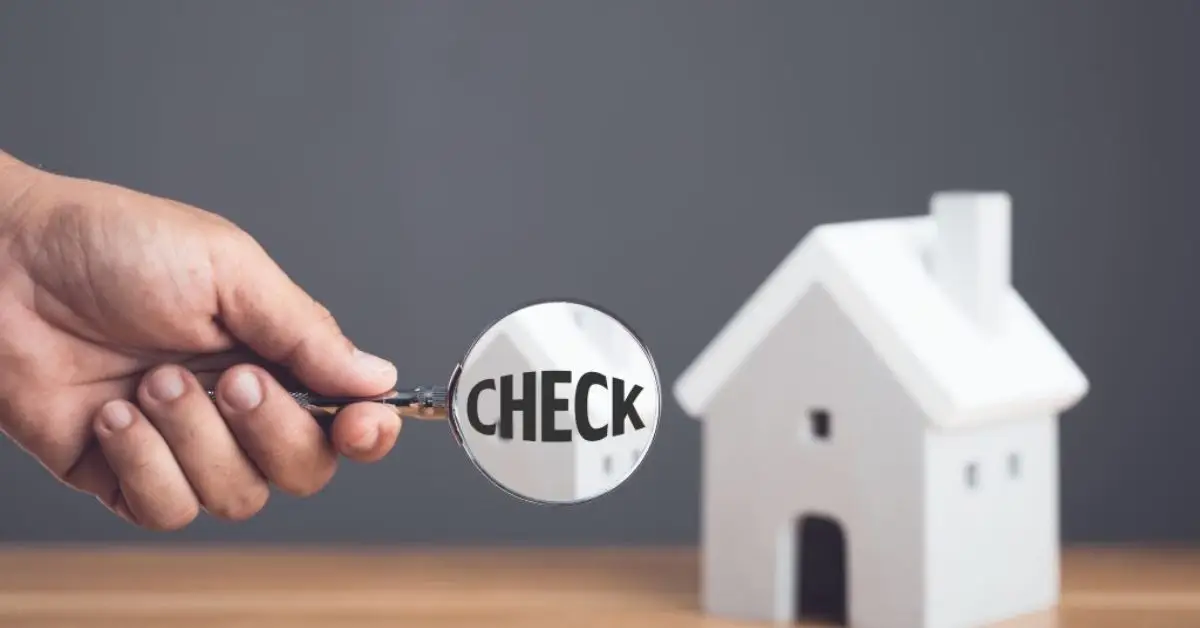Renting vs Selling Your House: What’s Better for You? Use These 10 Scenarios to Decide
If you’re a homeowner sitting on a property and wondering, should I sell or rent my house, you’re not alone. This question comes up a lot — especially when the market feels uncertain, or when your life is in transition.
Maybe you’re relocating for work. Maybe you’re done with being a landlord. Or maybe you’re looking at your equity and wondering if it’s time to cash out.
There’s no one-size-fits-all answer. But the right decision usually depends on one thing: your current life situation. That’s why I’m not going to throw generic pros and cons at you. Instead, we’re going to walk through 10 real-life scenarios where the choice becomes clear.
Each one will help you match your situation to a smarter, more confident decision — whether that means selling your home or renting it out.
Let’s start with one of the most common situations.
1. You Need a Lump Sum Now — Should You Sell?
Let’s be honest: if you’re dealing with a big financial need — starting a business, paying off student loans, or moving to a new city — this question isn’t just theoretical. It’s urgent.
If you need a large amount of cash quickly, selling your home is probably the most straightforward option. Renting it out won’t come close to the kind of liquidity you might need right now. Even if your rental brings in $2,000 a month, that’s only $24,000 a year — before taxes, maintenance, and vacancies.
Meanwhile, if your home has appreciated significantly — and many have over the past few years — selling could unlock $100,000 or more in equity. That’s money you can use today, not five years from now.
Now ask yourself:
- Are you carrying credit card debt with 20%+ interest?
- Are you relocating and not sure when (or if) you’ll return?
- Are you trying to fund something big — like grad school or a startup?
If yes, renting your property might only delay the inevitable. Selling can give you clarity, control, and options — instead of tying up your finances in a property that no longer fits your life.
So here’s the real question: What would change for you if that equity was sitting in your bank account right now?
That’s the value of selling when the time is right.
2. The Market Matters — Is It Better to Sell or Rent Right Now?
Before you make any decision, take a hard look at what the market is doing in your area. This isn’t just about timing the peak — it’s about understanding which side of the market is stronger: sellers or landlords.

If you live in a neighborhood where home prices have surged but rents haven’t caught up, selling might give you more bang for your buck. On the flip side, if home prices are cooling but rental demand is hot — think cities with growing job markets or tight inventory — holding onto the property and renting it out might earn you more over time.
Here’s what I mean:
- In many suburban areas, post-pandemic price jumps have slowed down, while rents are still climbing.
- In places like Austin, Phoenix, or Boise, early sellers who cashed out at the top made a smart move.
- Meanwhile, in high-rent cities like Denver, Atlanta, or Tampa, keeping the home as a rental might generate strong monthly cash flow.
You can check your area’s trends using data from Zillow or Redfin. Look at:
- 12-month price trends
- Average days on market
- Rental vacancy rates
- Cap rate (rental income vs property value)
Don’t base your decision on a national headline. Look hyperlocal — your zip code, your street, your comps.
If it’s a seller’s market — low inventory, fast sales, bidding wars — selling may give you maximum value. If it’s a renter’s market — high demand, rising rents, strong yield — holding and renting might win. If you’re thinking of listing soon, check out 7 Homebuyer Strategies to Win in a Seller’s Market — it’s a great read for understanding what today’s buyers are doing to compete.
You don’t need to time the top perfectly. You just need to know which side of the market you’re playing on.
3. Your Area Has Strong Rental Demand — Should You Hold and Cash Flow?
If your home is in a location with steady rental demand, there’s a good chance you can turn it into a reliable income-generating asset. But the key word here is steady.
We’re talking about:
- College towns with consistent student demand
- Metro areas with tech or healthcare growth
- Places near transit lines or major employers
- Cities with high barrier to ownership (e.g., high interest rates or low inventory)
In these kinds of markets, your property can do more than just sit — it can pay you every single month.
Let’s say your mortgage is $1,300/month and local rents are $2,100/month. After property management and maintenance, you might still clear $500–600/month in net cash flow. That’s not just passive income — that’s long-term equity growth with tax benefits.
Also worth noting:
- You may be able to deduct mortgage interest, property taxes, and repairs on your taxes.
- Rents tend to adjust with inflation, while your fixed-rate mortgage stays the same.
- Your home continues to appreciate over time, while tenants help pay it off.
But here’s the trap: if you’re in an area where rental demand is seasonal or soft, or if you don’t want to manage tenants, this can become more headache than it’s worth.
Redfin recommends running the numbers carefully. Look at:
- Cap rate (net annual income ÷ home value)
- Expected vacancy rates
- Maintenance reserves
- Time horizon — Can you hold for at least 5–7 years?
If your home is in a market with strong, stable rent demand and you’re okay being a landlord — or hiring a property manager — renting it out can be a smart long-term wealth play.
But if the numbers barely work or you’re relying on rent to cover debt, selling might be the safer move.
4. You Plan to Return Later — Should You Rent in the Meantime?
If you’re moving for a job, family, or travel but plan to come back to the same city or neighborhood, selling your home might feel too final. And honestly, it might be.
In this case, renting out your home could be the smarter move — not because it’s the best financial decision in every case, but because it gives you flexibility and future options.

Think about it: if you sell now and prices go up while you’re gone, you might struggle to buy back into the same market later. But if you hold the property, it’s there waiting for you — and in the meantime, you’re building equity while someone else pays the mortgage.
This is a common approach for homeowners in cities like San Diego, Seattle, or Nashville, where appreciation trends have been strong and inventory remains tight. If you think there’s even a 30% chance you’ll want to return, holding the home can protect your long-term buying power.
That said, it only works if:
- You can rent the place at or above breakeven
- You’re willing to manage (or outsource) landlord duties from afar
- You’re not dependent on selling for immediate liquidity
A lot of people in this boat choose to work with local property managers — especially if they’re relocating out-of-state or overseas. Yes, you’ll pay a fee (often 8–10% of rent), but you avoid tenant headaches, legal compliance issues, and late-night maintenance calls.
And here’s a tip: in many states, including California and Texas, you may qualify for capital gains tax exclusion if you’ve lived in the home 2 out of the last 5 years. So if you’re planning to sell later, renting temporarily could still allow you to pocket tax-free profits — just make sure you understand the IRS rules.
If there’s a real chance you’ll want the home back, and you can rent it out without losing money, holding the property gives you time and options. You’re not forced into a forever decision today.
Ask yourself: Is this home still part of my 3–5 year future? If yes, you might not be done with it — even if you’re moving away for now.
5. The Property Needs Repairs — Should You Fix, Rent, or Sell?
Let’s say your home isn’t in perfect shape. Maybe the roof is aging. Maybe the HVAC is overdue. Maybe the kitchen hasn’t been touched since the 90s.
This is where a lot of homeowners get stuck. Should you fix it up and sell? Fix it up and rent? Or sell as-is and walk away?
Here’s how I look at it: If the repairs are minor and the rental market is strong, it might be worth doing a few strategic upgrades and keeping the property as a rental. But if you’re staring at a $30,000 renovation — and you’re not planning to stay or return — that kind of investment can turn into a sunk cost fast.
It all comes down to ROI:
- Will those repairs increase the rental value enough to justify the cost?
- Will they significantly improve the resale price?
- Or are you better off pricing the home below market and letting an investor take it on?
Another factor is rental risk. Homes with outdated systems and structural wear-and-tear can become landlord nightmares. Every maintenance call, repair invoice, or code violation cuts into your cash flow and increases stress. And unless you’re handy (or have a great property manager), renting a fixer-upper can backfire fast.
Here’s a simple gut test:
- If you were buying this home today as an investment, would you rent it out in its current condition?
- If not, why would you expect someone else to treat it like a cash-flow machine?
If your home needs serious work and you’re not emotionally or financially up for it, selling as-is might be the cleanest path. You avoid the renovation gamble and get out without taking on more debt or project fatigue. If you’re leaning toward selling your rental, don’t miss The Smart Landlord’s Checklist: 10 Steps to Selling Your Rental Property Fast — it walks you through the process with clarity and speed.
But if the repairs are manageable and the rental income makes sense long-term, you may still have a solid hold-and-rent opportunity — especially in a market where updated rentals are in high demand.
Ask yourself:
Are you trying to build wealth, or just get rid of a burden? That answer will tell you which path makes more sense.
6. You Don’t Want to Be a Landlord — Should You Still Rent?
Let’s be honest — not everyone wants to be a landlord. And if that’s you, there’s no shame in it.
Maybe you don’t want to chase down late rent. Maybe the idea of emergency plumbing calls or navigating eviction laws makes you feel anxious. Or maybe you just don’t want to deal with people living in your former home — emotionally or practically.

Investopedia
Being a landlord is not passive income. It’s a job. Even with a property manager, you’re still the owner. You still carry the financial risk, the liability, and the long-term upkeep.
This is where a lot of homeowners make the mistake of chasing “potential” income without considering the emotional cost. And that leads to burnout, resentment, and costly mistakes.
According to Redfin, a common reason people choose to sell rather than rent is because they don’t want to deal with tenants, especially if they’re moving far away or don’t have the time to manage the property.
Here’s what I tell people: If you’re already hesitant, it won’t get easier once the lease is signed. Being unsure now usually turns into regret later — especially if the tenant damages the property or the rent doesn’t cover unexpected costs.
So ask yourself honestly:
- Would you sleep better knowing the home is sold and done with?
- Would renting it bring peace — or stress?
If you don’t want to be a landlord and you’re only considering renting because “it feels like a waste to sell,” you’re probably forcing a decision that doesn’t fit your life. Let go. Move forward. Use the equity for something that energizes you.
7. You Expect Home Prices to Keep Rising — Should You Hold and Wait?
Now let’s flip the coin. What if your home is in a fast-appreciating area? What if it feels like selling now means leaving money on the table?
You’re not wrong to ask.
In the past few years, home prices in many U.S. cities have risen sharply. Even with interest rates climbing, inventory remains historically low, and prices in places like Miami, San Diego, and parts of the Midwest are still trending upward.
If your area has:
- Strong population growth
- Limited new construction
- High job market activity
- Major infrastructure development
Then there’s a good chance holding your property will grow your equity even more.
In this scenario, renting it out — even for a modest profit — lets you stay in the game. You collect rent, build equity, and potentially sell in a stronger future market. Think of it as a bridge strategy: let tenants help pay off the home while you wait for appreciation to peak.
But don’t forget — future value is never guaranteed. If you need the money now, or if holding the property creates stress, waiting may not be worth it.
Here’s the trade-off: Would you rather take a strong return now and redeploy that capital — or gamble on a bigger win later?
If your market is rising and you’re in a position to wait, renting can be a wealth-building move. But if that wait is costing you peace of mind, time, or missed opportunities elsewhere, it’s okay to exit while you’re ahead.
8. You’re Emotionally Attached — Are You Holding On for the Right Reasons?
This one’s harder to admit — but it’s often the real reason people delay making a decision.
- Maybe it’s your first home.
- Maybe you raised your kids there.
- Maybe it’s the only real asset that feels like “yours.”
Emotional attachment to a home is powerful. But when you’re deciding whether to sell or rent, it can cloud your judgment.
Here’s the problem: real estate doesn’t care about your memories. The market responds to facts — demand, timing, condition, cash flow — not the birthday parties or holidays you hosted in that living room.
That doesn’t mean you’re wrong to feel connected. It just means you have to separate sentiment from strategy.
I’ve seen families hold onto properties they couldn’t afford — just because it “felt wrong” to sell. They end up resenting the burden, spending weekends on repairs, or missing out on opportunities because their money was tied up in a house they didn’t even live in.
Ask yourself:
- Am I keeping this home because it makes financial sense — or because it feels like letting go?
- Would someone else pay rent for the version of this home that exists in my mind?
- What could I do with the proceeds — if I gave myself permission to move on?
According to Forbes, many homeowners overvalue their own emotional connection when evaluating whether to rent or sell — and as a result, make decisions that don’t align with their long-term goals.
There’s no shame in being sentimental. But if the home no longer fits your life — financially, logistically, or emotionally — it might be time to let it go.
The memories stay, even if the walls change.
9. You’re Relocating to a Different State — Should You Keep the Property?
Relocating sounds like a clean break — new job, new city, new life. But when you own a home, the decision isn’t that simple. Should you rent it out while you move across the country? Or sell and start fresh?

Here’s what I’ve seen happen:
A homeowner moves from California to Texas (or from New York to North Carolina), keeps their old place as a rental, and assumes it’ll “just run itself.” But without local connections, a trusted handyman, or a property manager who really knows the home — it rarely works out that cleanly.
Managing a rental from out of state is tough. You’ll need:
- A responsive, vetted property management company
- Reliable contractors for repairs
- Clear local knowledge of tenant laws (which vary a lot state to state)
And then there’s the tax side.
Let’s say you bought in California and are now establishing residency in Florida. Even if Florida has no income tax, your rental income in California is still taxable there — and you’ll still file a nonresident return in CA as long as you own rental property there.
This matters more if:
- You’re building residency in a low/no-tax state like Texas or Florida
- Your property is in a high-tax state like California, New York, or Oregon
- You want to avoid capital gains later by selling sooner
If you’re emotionally and logistically ready to detach, selling your home before relocating can simplify your finances, reduce stress, and free up equity for your new life.
But if the property cash flows well, and you’re okay paying a manager and dealing with state tax filings, renting can still be profitable — especially if the local market is appreciating.
Here’s the question:
Are you willing to stay tied to your old city — legally, financially, emotionally — after you’ve already moved on?
10. The Local Rental Market Is Cooling — Is Selling the Smarter Move?
You’ve probably heard stories of landlords raking in rent with bidding wars. That still happens — in the right markets. But not every city is riding that wave anymore.
If your local rental market is slowing — longer vacancy periods, falling rents, higher tenant turnover — you need to ask:
Is renting this home still a smart move, or am I holding onto a sinking ship?
According to Housing.com, rental demand is hyper-local. Just because rents are rising nationally doesn’t mean your zip code is keeping up. In fact, in many parts of the U.S., post-pandemic rental booms have started to cool as more supply hits the market and tenants push back on price hikes.
Here’s what to watch for:
- Are homes in your neighborhood sitting vacant longer?
- Are rents flat or declining year over year?
- Are you needing to offer incentives — like free first month’s rent — just to attract tenants?
If yes, the long-term return from renting may not be worth the short-term stress.
And don’t forget maintenance costs and inflation: If rent is softening while labor and materials keep rising, your margins can disappear fast. Many would-be landlords underestimate how fast profits erode when AC units fail, roofs leak, or tenant turnover spikes.
Here’s what I usually say: If rental demand isn’t strong and the property won’t break even after expenses, it might make more sense to sell — especially if you can lock in a good sale price today and reinvest that equity somewhere more stable.
When rental markets cool, holding onto a home becomes riskier. Selling in a stable or slightly appreciating sales market can protect your gains and avoid long-term bleed.
Ask yourself:
Would you buy this property as a rental at today’s price and market rent?
If not, selling might be your real answer.
What’s Right for You: Sell, Rent, or Something In Between?
After going through these 10 scenarios, one thing should be clear:
There’s no one-size-fits-all answer.
You don’t need to rent your home just because someone said it’s “smart” passive income. And you don’t need to sell just because the market’s good. This decision is deeply personal — shaped by your finances, risk tolerance, goals, and even your peace of mind.
Here’s what I want you to remember:
- Selling brings clarity, liquidity, and simplicity. If you’re ready to move on — emotionally or financially — it’s a clean break that can fuel your next chapter.
- Renting offers long-term growth and cash flow — but only if you’re built for the responsibility.
Don’t underestimate what it takes to be a landlord, especially from a distance or in a shaky market. - And sometimes, the best move is hybrid — rent it for a year, test the waters, and reassess. No rule says you have to decide forever today.
So ask yourself — what are you solving for right now?
- Freedom?
- Income?
- Stability?
- Or just peace of mind?
Be honest about what matters most. That’s where the right answer lives. And whichever path you choose, make sure you Avoid These 8 Home Buying & Selling Mistakes — a few wrong moves now can lead to big regrets later.
What’s your biggest hesitation about selling or renting your home?
Drop it in the comments — I’d love to hear your take and help you think it through.
Looking for more smart homeowner guides? Visit Build Like New for tips, tools, and expert advice to help you make confident real estate decisions.
Disclaimer
This article is for educational purposes only and does not constitute financial, tax, or legal advice. Always consult a licensed real estate agent, tax advisor, or attorney in your state before making property decisions.


